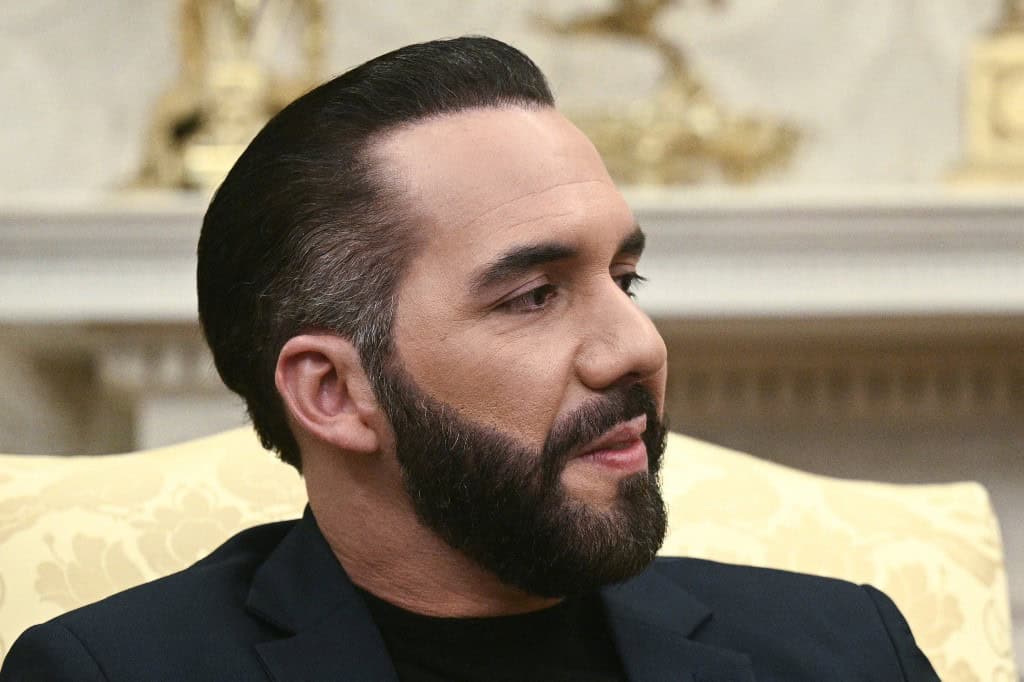El Salvador’s President Nayib Bukele declared Sunday that he “doesn’t care” if people call him a dictator, amid mounting criticism over recent arrests of human rights activists and actions against NGOs. In a nationally televised speech from the National Theater marking the first year of his second term, Bukele defended his government’s hardline policies, his alignment with Donald Trump on deportations, and his offensive against humanitarian organizations.
The president accused NGOs in the country of defending gang members and engaging in political activism. He also lashed out at international organizations and the media, claiming they are part of an “organized attack” on his administration. “You know what? I don’t care if they call me a dictator. I’d rather be called a dictator than see Salvadorans being killed in the streets,” Bukele said, referencing criticisms of his heavy-handed security policies.
At 43, Bukele governs with near-total control after winning re-election with 85% support, thanks to his gang crackdown, which brought violence in El Salvador to historic lows through a state of exception allowing mass detentions without court orders. His administration is under fire for the May 18 arrest of Ruth López, an NGO lawyer who investigated alleged government corruption and supported victims of the state of exception and families of 252 Venezuelans deported from the U.S. and jailed in El Salvador.
“They say we imprison human rights defenders, dissidents, regime critics… You can’t touch them. Every corrupt opposition figure arrested becomes a political prisoner. Now working at an NGO means impunity,” Bukele mocked.
Defending Murderers
Prosecutors accuse López of embezzlement dating back to her time advising the electoral tribunal a decade ago. But local and international organizations – including Amnesty International and Human Rights Watch – claim the arrest is part of a campaign to silence dissent and suppress human rights work.
Two other activists who supported a rural protest were also arrested in May, and in February, Fidel Zavala, a leader of the Human and Community Rights Defense Unit (UNIDEHC), was detained for alleged gang ties. NGOs say Bukele is using the state of exception—imposed three years ago—to target critics, with over 86,000 alleged gang members or collaborators detained. They claim about 400 people have died in prison and thousands of innocent people remain jailed.
“These so-called defenders of democracy want us to be unable to punish murderers, all in the name of a supposed ideal of human rights that only protects criminals,” Bukele stated. According to him, gangs have killed approximately 200,000 Salvadorans over the past 30 years. Bukele also defended the Foreign Agents Law, modeled after Russia and Nicaragua, which requires NGOs to register and pay a 30% tax on foreign funds.
Deported Criminals
A key ally of Trump’s anti-immigration policies, Bukele in March received and jailed 252 Venezuelans and 36 Salvadorans deported from the U.S., accused—without evidence—of criminal activity. At the National Theater, Bukele criticized Democratic lawmakers who visited El Salvador to request access to detainees, especially Kilmar Ábrego, a Salvadoran deported “by mistake” despite having legal protection.
“Foreign congresspeople come knocking on prison doors demanding we release criminals. What gives them the right? It’s always the self-declared defenders of democracy who don’t believe in our democracy,” said Bukele. Known for his theatrical flair, Bukele orchestrated a full production to record and share footage of the deportees entering the Terrorism Confinement Center (Cecot) with shaved heads and in chains.
Critics accuse him of authoritarianism. His re-election has been widely questioned as unconstitutional but was made possible by a favorable court ruling. “In this first year of an unconstitutional second term, we are seeing an authoritarian escalation. This is the consolidation of a dictatorship,” said Ingrid Escobar, director of the NGO Socorro Jurídico Humanitario.






